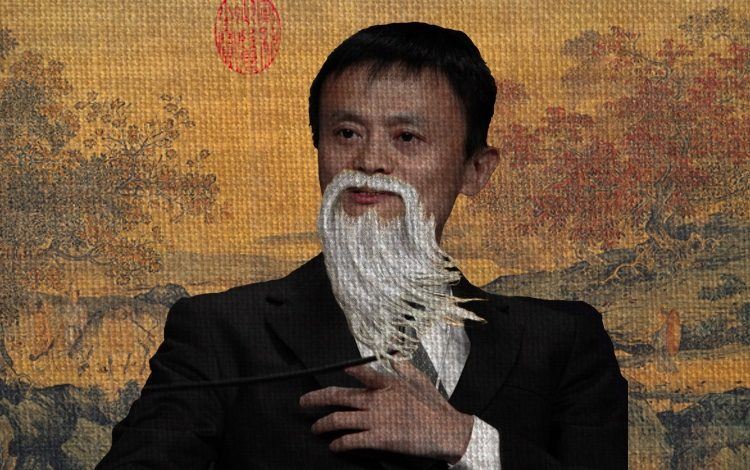
When it comes to entrepreneurial success, there’s almost nobody in Asia who’s on Jack Ma’s level. From his beginnings as an English teacher, he built an ecommerce empire that beat global giants like eBay and that’s now expanding into everything from movies to virtual reality.
So what’s the secret behind Jack Ma’s winning philosophy? Well, perhaps some of it comes from the book his assistant says rarely leaves his desk: a thin, unannotated version of the Daodejing.
The Daodejing (sometimes also spelled Tao Te Ching) is a work of early Daoist philosophy said to have been written by Laozi. It dates back to at least the late 4th century B.C.E., and it’s one of the most influential philosophical texts ever, having helped to shape not only Daoism but also other schools of thought including Confucianism, Legalism, and Chinese Buddhism. The text itself is a collection of short, poetic verses about life and the dao.
Chinese people often read the Daodejing with scholarly annotations, but not Jack Ma
Dao itself is a complex concept. It’s usually translated as “the way” (as in, “the way of the universe”), and it typically refers to the process or forces of life that exist throughout the world but that are difficult to put your finger on. You can think of the Dao as sort of like the Force from Star Wars (at least in the original films). The Dao flows through everyone and everything, but it’s also something that the adept can tap into. In Star Wars, people tap into the force to be really good at laser sword fights, but in early Daoism connecting oneself with the Dao is more about being able to live in harmony with (and govern) the world.
Obviously, this is heady stuff, and Chinese people often read the Daodejing with scholarly annotations that help elucidate its meaning. But Jack Ma apparently doesn’t go for that. He reads only the text itself, and while doing that he once reportedly exclaimed: “Aiya, this isn’t me reading Laozi, it’s Laozi reading me, and he’s read the deepest depths of my heart!”
So what could Jack Ma be getting from this book? Only he could say for sure, but here are some lessons from the text that entrepreneurs (including Jack Ma) might take to heart.
(Disclaimer: The Daodejing is not a book of business advice. We can pull business lessons from it, but to be clear, Laozi was not writing a startup guide and he certainly wouldn’t have considered becoming a wealthy businessman to be a reflection of successful understanding of the dao).
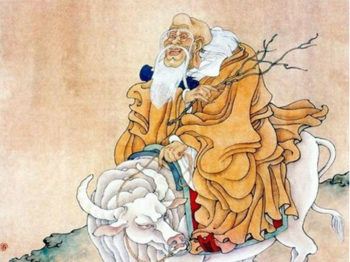
Laozi
On trusting your team
The best of all rulers is but a shadowy presence to his subjects.
Next comes the ruler they love and praise;
Next comes the one they fear;
Next comes one with whom they take liberties.
When there is not enough faith, there is a lack of good faith.
Hesitant, he does not utter words lightly.
When his task is accomplished and the work done
The people all say, “It happened to us naturally.”
–Daodejing, XVII, D.C. Lau translation
The Daodejing has a lot to say about leadership, and this might be one of the most important lessons for entrepreneurs: trust your team. As Laozi wrote, a lack of trust (faith) on your part will beget a lack of trust among your employees. The best leader, the Daodejing says, is not one who rules by fear or even by love, but one who acts thoughtfully, naturally, and quietly.
Jack Ma probably hasn’t absorbed the latter lesson so well – he can be called many things; quiet is not one of them – but he has shown great faith in his team from Alibaba’s early days through the present. He hired the right people, trusted them to do their jobs properly, and the resultant success generated a ton of trust in him.
On handling failures
When the uncarved block shatters it becomes vessels. The sage makes use of these and becomes the lord over the officials.
The greatest cutting
Does not sever.
–Daodejing, XXVIII, D.C. Lau translation
This is about addition by subtraction or creation through destruction. Any startup is going to make missteps and travel down avenues that don’t prove helpful for the business. But rather than simply writing failed programs off as losses, the best entrepreneurs recognize that new things of value are created through those failures. The failure of a project might mean its team can be split up to work on other projects and provide greater efficiency. The team, the data, the technology, the hardware, and the lessons from a failed project – all of these are valuable pieces that the best entrepreneurs will recognize and use.
Jack Ma is living proof of this. Before Alibaba, he presided over another internet ecommerce startup called China Pages. It failed miserably, but he was able to pick up the valuable pieces of that business – which, like Alibaba, aimed to connect Chinese companies with foreign customers – and spin them into Alibaba a few years later. We all know how that went.
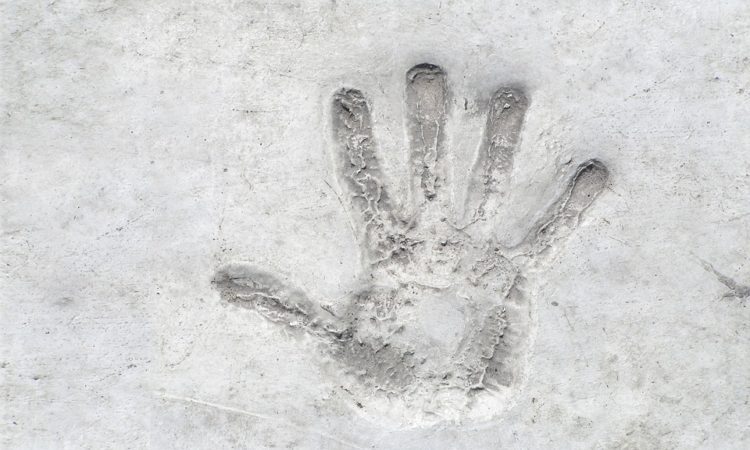
Photo credit: Pixabay.
On knowing yourself
He who knows others is clever,
He who knows himself has discernment.
He who overcomes others has force,
He who overcomes himself is strong.
–Daodejing, XXXIII, D.C. Lau translation
The Daodejing certainly isn’t the only philosophical work to tout what we might now call the “know thyself” trope, and the message is the same here as elsewhere: understanding others is great, but true power lies in understanding yourself. For an entrepreneur this is of especially crucial importance. Plenty of startups have died because their founders misjudged their own abilities. Knowing what you can do and, more importantly, what you can’t shapes how you hire your team and how you run your business day-to-day.
We can only guess at how well Jack Ma truly knows himself, but it’s worth pointing out that he’s always been very open about his failures, and has often played down his own intelligence.
On vision
Have in your hold the great image
and the empire will come to you.
–Daodejing, XXXV, D.C. Lau translation
This one’s pretty simple from an entrepreneur’s perspective: the strongest startups are those with a clear vision that they hold to unflinchingly.
Certainly, that’s something that Jack Ma has done. From the beginning, he had a vision of a China that was powered by ecommerce, and one that worked differently from the prevailing Western model (eBay). At the time, most people thought he was nuts: China wasn’t going to adopt ecommerce, and even if it was, some English teacher’s weird startup wasn’t going to beat eBay! But Ma stuck to his vision and the rest is history.
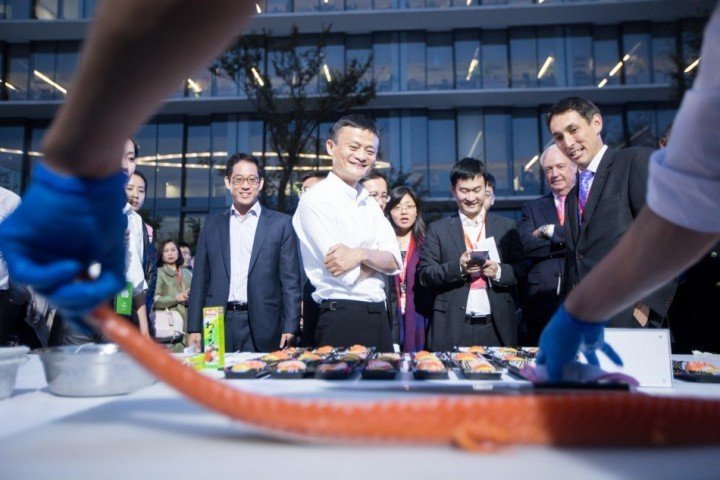
On hard work and recognizing opportunities
When the best student hears about the way [dao],
He practices it assiduously;
When the average student hears about the way,
It seems to him one moment there and gone the next;
When the worst student hears about the way,
He laughs out loud.
–Daodejing, XLI, D.C. Lau translation
There are two messages of value here. First, the skilled entrepreneur recognizes opportunity where others do not. Poor entrepreneurs laughed out loud at Jack Ma’s idea to make an ecommerce company in China; decent ones may have seen the same opportunity he did but failed to figure out how to grasp it. The best founders are guys like Jack Ma, who can see the opportunity others don’t.
Second, good founders grasp the opportunity and pursue it “assiduously,” sticking to their vision and working hard day in and day out. That’s something Jack Ma has quite obviously done.
On knowledge
One who knows does not speak;
One who speaks does not know.
–Daodejing, LVI, D.C. Lau translation
This is probably the most famous line of the entire book, and the meaning is pretty clear: the guys who are talking all the time are often the ones that doesn’t actually know what they’re talking about. This is something founders can reflect on both in the context of their own speaking habits but also in the context of hiring, assessing new advisors or investors, etc.
Of course, it’s not a completely foolproof rule, at least in the realm of business. Jack Ma, after all, speaks loudly and frequently. Clearly, this particular lesson from the Daodejing isn’t one that he himself has taken to heart in terms of his own behavior, but he may still be using it when he assesses some of the people he surrounds himself with.
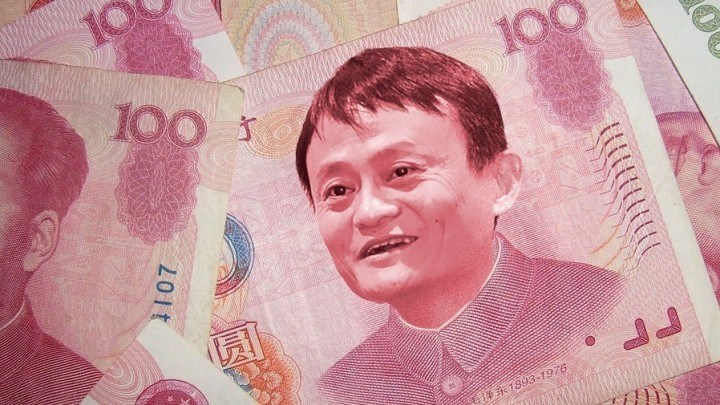
Image by TiA. Photo of Jack Ma originally from VG Photo Studio
On greed
The people are hungry:
It is because those in authority eat up too much in taxes
That the people are hungry.
–Daodejing, LXXV, D.C. Lau translation
This is another straightforward one: too much greed at the top can lead to calamity lower down the food chain. And while a despotic ruler might not care, a startup founder has to care – remember that without its employees even the most powerful company in the world would be virtually worthless.
I’m sure there are disgruntled employees that might argue otherwise, but in general Jack Ma is respected for abiding by this rule. He puts a lot of focus on employee well-being, hosting massive company-wide retreats that are more focused on fun than work. And while he’s certainly made bank personally off of Alibaba’s success, he made quite a lot of other people at the company wealthy, too.
On putting yourself last
Therefore the sage puts his person last and it comes first,
Treats it as extraneous to himself and it is preserved.
Is it not because he is without thought of self that he is able to accomplish his private ends?
–Daodejing, VII, D.C. Lau translation
To be successful as an entrepreneur, you need to put your company’s mission first. You need to serve that mission (and the employees carrying it out) before you serve yourself. If you go into business only focused on making yourself rich or famous, chances are that at some point your personal goals and your business’s goals will be at odds, and if you pursue your own interests you’ll destroy the business, ending up with nothing. As an entrepreneur, the best way to serve your own goals is by not serving them, but putting yourself last and focusing on the broader mission.
Jack Ma may not be a perfect example of this, but he’s done things like sacrificing short-term profits for the sake of long-term company integrity.
Jack Ma likes the Daodejing. What’s the one book that never leaves your desk?
This post 8 lessons from Jack Ma’s favorite book appeared first on Tech in Asia.
from Tech in Asia https://www.techinasia.com/tk-lessons-jack-mas-favorite-book
via IFTTT
No comments:
Post a Comment